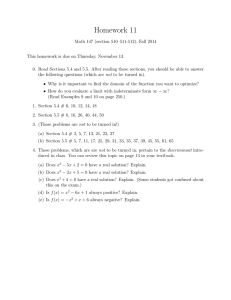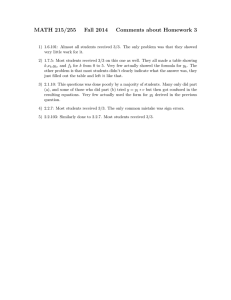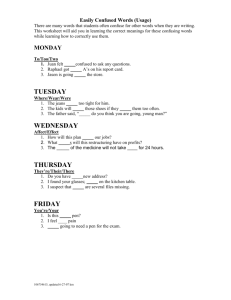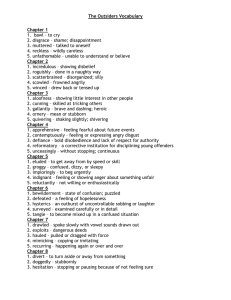Math Study Skills Inventory
advertisement
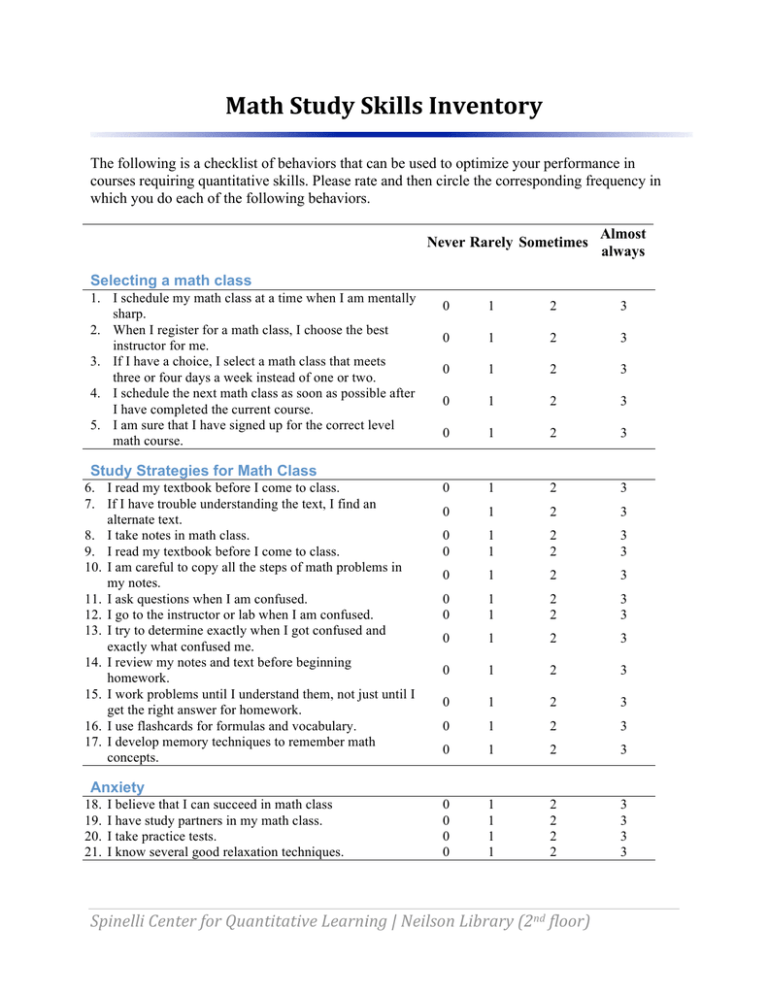
Math Study Skills Inventory The following is a checklist of behaviors that can be used to optimize your performance in courses requiring quantitative skills. Please rate and then circle the corresponding frequency in which you do each of the following behaviors. Never Rarely Sometimes Almost always Selecting a math class 1. I schedule my math class at a time when I am mentally sharp. 2. When I register for a math class, I choose the best instructor for me. 3. If I have a choice, I select a math class that meets three or four days a week instead of one or two. 4. I schedule the next math class as soon as possible after I have completed the current course. 5. I am sure that I have signed up for the correct level math course. 0 1 2 3 0 1 2 3 0 1 2 3 0 1 2 3 0 1 2 3 0 1 2 3 0 1 2 3 0 0 1 1 2 2 3 3 0 1 2 3 0 0 1 1 2 2 3 3 0 1 2 3 0 1 2 3 0 1 2 3 0 1 2 3 0 1 2 3 0 0 0 0 1 1 1 1 2 2 2 2 3 3 3 3 Study Strategies for Math Class 6. I read my textbook before I come to class. 7. If I have trouble understanding the text, I find an alternate text. 8. I take notes in math class. 9. I read my textbook before I come to class. 10. I am careful to copy all the steps of math problems in my notes. 11. I ask questions when I am confused. 12. I go to the instructor or lab when I am confused. 13. I try to determine exactly when I got confused and exactly what confused me. 14. I review my notes and text before beginning homework. 15. I work problems until I understand them, not just until I get the right answer for homework. 16. I use flashcards for formulas and vocabulary. 17. I develop memory techniques to remember math concepts. Anxiety 18. 19. 20. 21. I believe that I can succeed in math class I have study partners in my math class. I take practice tests. I know several good relaxation techniques. Spinelli Center for Quantitative Learning | Neilson Library (2nd floor) Time and Place for Studying Math 22. I study math every day. 23. I try to do my math homework immediately after math class. 24. I have a specific time to study math. 25. I have a specific place with few distractions to study math. 26. I do my math homework in the lab where I can get help. 27. I am careful to keep up to date with math homework. 28. I study math at least 8 to 10 hours a week. 0 1 2 3 0 1 2 3 0 1 2 3 0 1 2 3 0 1 2 3 0 0 1 1 2 2 3 3 0 1 2 3 0 1 2 3 0 0 1 1 2 2 3 3 0 1 2 3 0 1 2 3 0 1 2 3 Math Tests 29. I preview the test before I begin. 30. Before I begin the test, I make notes on things such as formulas that I might need. 31. I begin with the easy questions first. 32. I take the full amount of time allotted for the test. 33. I carefully check or rework as many problems that I have time to before I turn in my test. 34. When tests are returned, I keep a log of the types of mistakes I make on tests: concept errors, application errors, or careless errors. 35. I keep up to date so that I don't have to cram the night before a test. ______ TOTAL SCORE Scoring: Total the scores from all 35 statements. If your score is 90 - 105, give yourself an A. You are using the study skills you need in order to be successful in math. If your score is 80 - 89, give yourself a B. You are using good math study skills. Choose a few strategies to work on each day, and you are well on your way to an A. If your score is 70 - 79, give yourself a C. Your study skills are average. If you want an A, choose one or two strategies in each category to work on until you are using most of the strategies described above. If you score is below 70, you are probably having a difficult time in math class. Math may not be your trouble! More than likely, your main problem is the study strategies you are using (or not using). Make yourself do the things on the list above. Spinelli Center for Quantitative Learning | Neilson Library (2nd floor)
